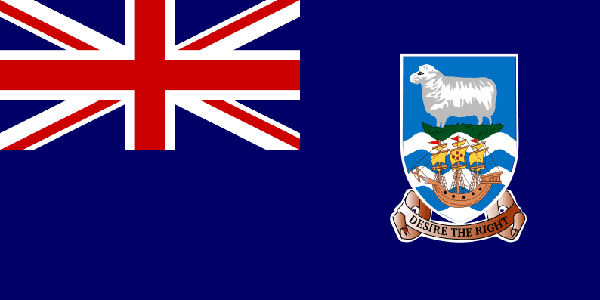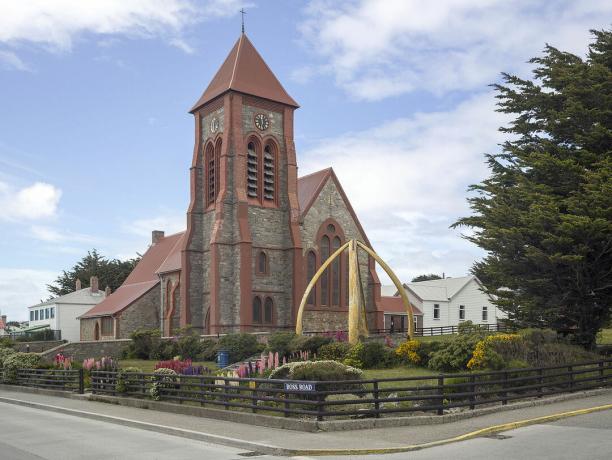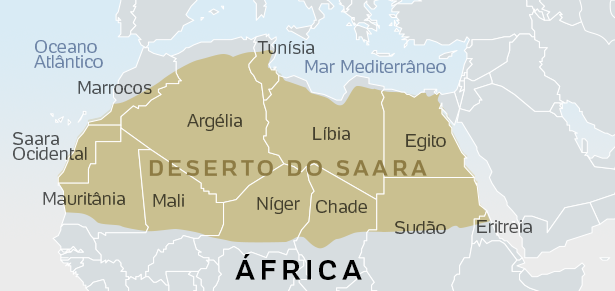The Falkland Islands (or Falkland, as the English call it) is an archipelago in South America, located near the south of Argentina and Chile. overseas territory with the autonomous government of the United Kingdom, the region is also claimed by Argentina, a position that resulted, in the 1980s, in a conflict that would have the name of Falklands War.
Check out the main data about the Malvinas Island:

Main dataPopulation (2018): 3.000
Area (km²): 12.173
Capital: Stanley
National coin: Falkland Islands Pound
Official language: English
Comprised of two main islands – West Malvina and East Malvina – and 200 smaller islands, the Malvinas territory is mostly rocky and deforested. The Malvinas vegetation is low, with no natural tree growth. Due to its location, the Malvinas Islands have an average annual temperature of 5°C, with an average maximum of 9°C and a minimum of 3°C.
Most of the population is made up of British or settler descendants, who mostly came to the island in the 19th century. The economy is mainly based on fishing, sheep farming, agriculture, in addition to tourism.
The island is known for being the breeding site for thousands of penguins. Other animals such as dolphins, sea lions, elephant seals and squid are also abundant on the island.
Index
- UK x Argentina
- Falklands War
- Current situation
UK x Argentina

The first to found settlements in the Malvinas Islands were the French, in the year 1764, in the East Falklands. The following year, in 1765, it was the turn of the British to settle in the region, but in West Falkland.
In 1766, French occupation was replaced by Spanish. The settlements coexisted until 1774, when the British withdrew from the island.
Unoccupied, used only occasionally for fishing, the Malvinas Islands are, in 1820, claimed by Argentina, independent from Spain since 1816 and the country closest to the territory. The British returned to occupy the area in 1833. In 1841, a British civil lieutenant governor was appointed to the region, and in 1885, a British community of around 1800 was established on the island. Argentina, however, did not give up, and continued with its claim.
- Free Online Inclusive Education Course
- Free Online Toy Library and Learning Course
- Free Online Preschool Math Games Course
- Free Online Pedagogical Cultural Workshops Course
After World War II, the question of sovereignty passed to the United Nations (UN). Argentina's claims were based on:
- In the Treaty of Tordesillas, made between Spain and Portugal in 1494;
- In the succession of the territory, originally Spanish according to the agreement between Spain and Portugal;
- In the proximity of the islands with South America and Argentina;
- In need of putting an end to a colonial status.
The United Kingdom claimed its sovereignty according to:
- The continuous and effective ownership, occupation and administration of the islands since 1833;
- The determination to apply the principle of self-determination of peoples to the inhabitants of the Malvinas Islands, according to the Charter of the United Nations, in which the population would exercise their right and choose their status politics.
In 1965, the UN General Assembly passed a resolution inviting Argentina and the United Kingdom to enter into dialogue in order to find a peaceful solution to the dispute. Discussions were ongoing when, in 1982, Argentina's military dictatorial government invaded the Falkland Islands, which started the Falklands War.
Falklands War

Argentina's invasion of the Malvinas was an attempt by the military government to try to unite the nation, which at the time, criticized the dictators for mismanagement and abuse of human rights. Bringing up the discussion of Argentine sovereignty in the region could ignite the nation's patriotic sentiment and divert attention from the country's problems.
The response from the UK was not long in coming. With a troop much larger than Argentina and US armaments - since the United States was allied with the in the North Atlantic Treaty Organization (NATO) - they beat the Argentines in about two months.
For the Argentine dictatorial government, the defeat weighed heavily. In just over a year, the dictatorship ended in Argentina and was replaced by a democratic government. For the United Kingdom, the victory guaranteed the victory of the Conservative Party of British Prime Minister Margaret Thatcher, in power at the time, in the 1982 elections.
Current situation
Although Argentina and the United Kingdom have re-established diplomatic relations, the South American country has not given up on claiming the territory of Malvinas – even with the result of the referendum in 2013, in which the majority of the inhabitants of the archipelago expressed their desire to remain under sovereignty British.
The fact that the United Kingdom found and started extracting the oil also raised discussions about the previous knowledge of these reserves, which has heated up the dispute between the two countries.
Even with the issues unresolved, the Falkland Islands remain under British rule.
The password has been sent to your email.

